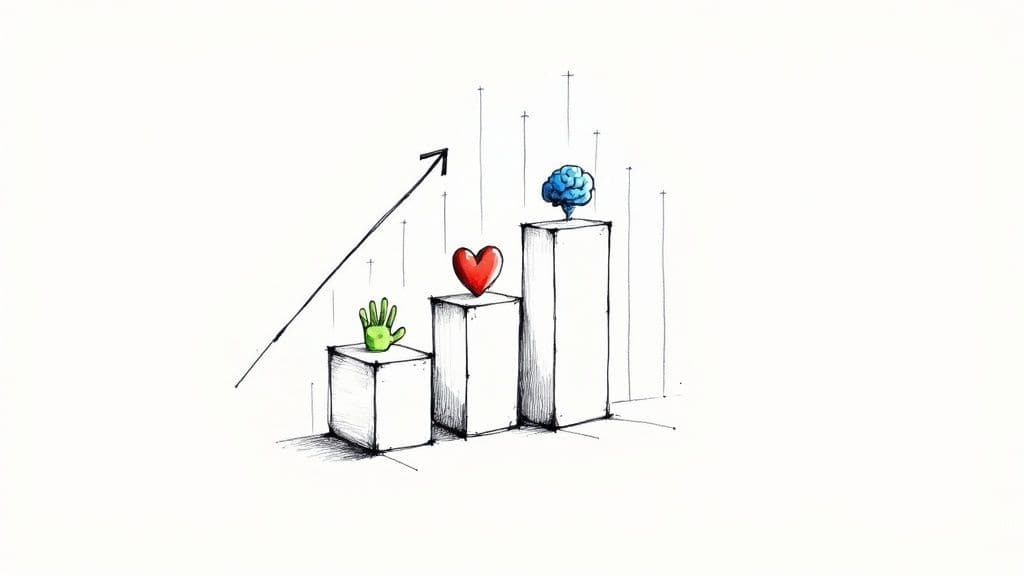Mastering Deep Work: Proven Techniques for Students, Founders, and Creatives
Learn proven deep work strategies to boost your productivity, creativity, and learning speed. Ideal for students, startup founders, and creatives focused on meaningful outcomes.
In today's distraction-filled world, the ability to perform deep work—a term coined by productivity expert Cal Newport—is becoming rare yet increasingly valuable. Whether you're a student tackling exams, a founder building a startup, or a creative developing groundbreaking work, mastering deep work can dramatically enhance your productivity, learning speed, and creativity.
What is Deep Work?
Cal Newport defines deep work as: “Professional activity performed in a state of distraction-free concentration that pushes your cognitive capabilities to their limit.” This contrasts sharply with shallow work, such as checking emails or attending endless meetings, tasks that often fill your day but yield minimal impact.
Why Deep Work Matters
Deep work isn't just about productivity—it's about producing meaningful, high-quality outcomes efficiently. Key benefits include:
- Enhanced Productivity: Focused effort can yield significantly more output in less time. Newport famously produced nine academic papers and a book within a year by strictly practicing deep work.
- Accelerated Learning: Deep work enables faster mastery of complex skills by allowing your brain to deeply integrate new knowledge.
- Boosted Creativity: Concentrated focus helps you reach "flow" states, unlocking heightened creativity and innovation.
Techniques for Achieving Deep Work
1. Time Blocking
Schedule dedicated deep work sessions on your calendar. Protect these time blocks fiercely. LinkedIn CEO Jeff Weinerfamously schedules daily buffer periods for deep reflection and strategic thinking.
2. Pomodoro Technique
Work in focused bursts (usually 25 minutes), followed by short breaks. Apps like Focusmate provide structured accountability through virtual coworking sessions.
3. Task Batching
Group similar tasks together to minimize the productivity loss caused by context switching. Wharton professor Adam Grant batches his teaching and research activities into specific periods to maximize output.
4. Digital Detox
Regularly disconnect from distracting technologies. Apps like Freedom help by blocking websites and apps that derail your focus.
5. Establish Rituals
Create consistent pre-work rituals to cue your brain into a deep work mindset. Famous novelist Haruki Murakami writes early every morning, maintaining a strict routine to enter a creative flow.
6. Optimize Your Environment
Design a workspace conducive to deep work: quiet, organized, and comfortable. Consider ambient sound apps like Brain.fm to enhance concentration.
7. Leverage Flow Triggers
Clearly define session goals, ensure immediate feedback, and maintain optimal challenge levels. These flow triggers significantly improve your likelihood of entering deep concentration states.
8. Intelligent Breaks
Strategically take breaks after deep work sessions to recharge mentally and prevent burnout.
Prioritize What Matters
One crucial principle of deep work is prioritizing tasks aligned with your most significant goals. Tools like SprintDojocan dramatically streamline this process by helping you define and track your North Star goals—the essential objectives that genuinely drive your life and work forward.
By clearly identifying and consistently revisiting these North Star goals, you ensure your deep work sessions remain laser-focused on activities that produce real, lasting impact.
Case Studies: Deep Work in Action
Cal Newport – Academic and Author
Newport emphasizes deep work by sticking strictly to his schedule, quitting work by 5:30 PM each day. His success underscores the efficiency gained from disciplined deep work practices.
Bill Gates – Microsoft's "Think Weeks"
Twice a year, Gates famously retreated to a secluded cabin for "Think Weeks" to deeply reflect and strategize, demonstrating how isolation boosts high-level creativity and problem-solving.
Nadia Tatlow – Shift CEO
Tatlow implemented "Deep Work Wednesdays", entirely free from meetings, significantly improving productivity and employee satisfaction.
Essential Tools for Deep Work
- Notion: Organize tasks, projects, and notes.
- Forest: Gamify distraction-free periods with virtual trees.
- Freedom: Block distracting websites/apps across devices.
- ~Focusmate: Pair up for online coworking accountability.
- ~Brain.fm: Music scientifically designed to boost productivity and focus.
⠀Building a Deep Work Habit
Consistency beats intensity. Start with short, frequent sessions and gradually increase duration and frequency. Align deep work sessions with your peak productivity times, minimize context-switching, and ensure deliberate rest periods to sustainably maintain your practice.
Final Thoughts
Deep work is your secret weapon in a distracted world. By mastering these techniques, using supportive tools, and clearly prioritizing your most significant goals (like those set through SprintDojo), you position yourself for remarkable productivity, creative breakthroughs, and sustained success.
Focus is your superpower—cultivate it wisely.
Sprint Smarter. Forecast Every Week.
Log wins. Build momentum. Let AI show you if you're on track to hit your sprint goal—before it's too late.
Join the waitlist and be the first to unlock predictive clarity for your team.

